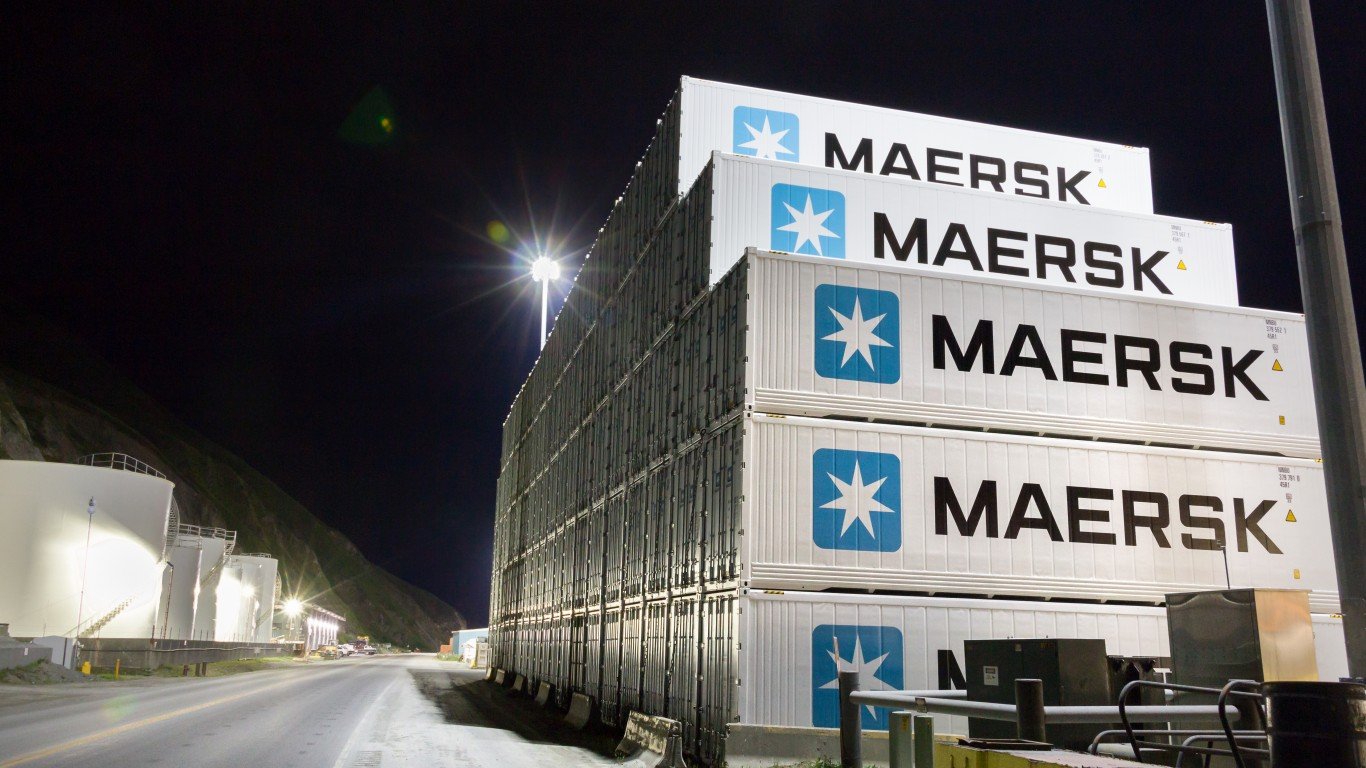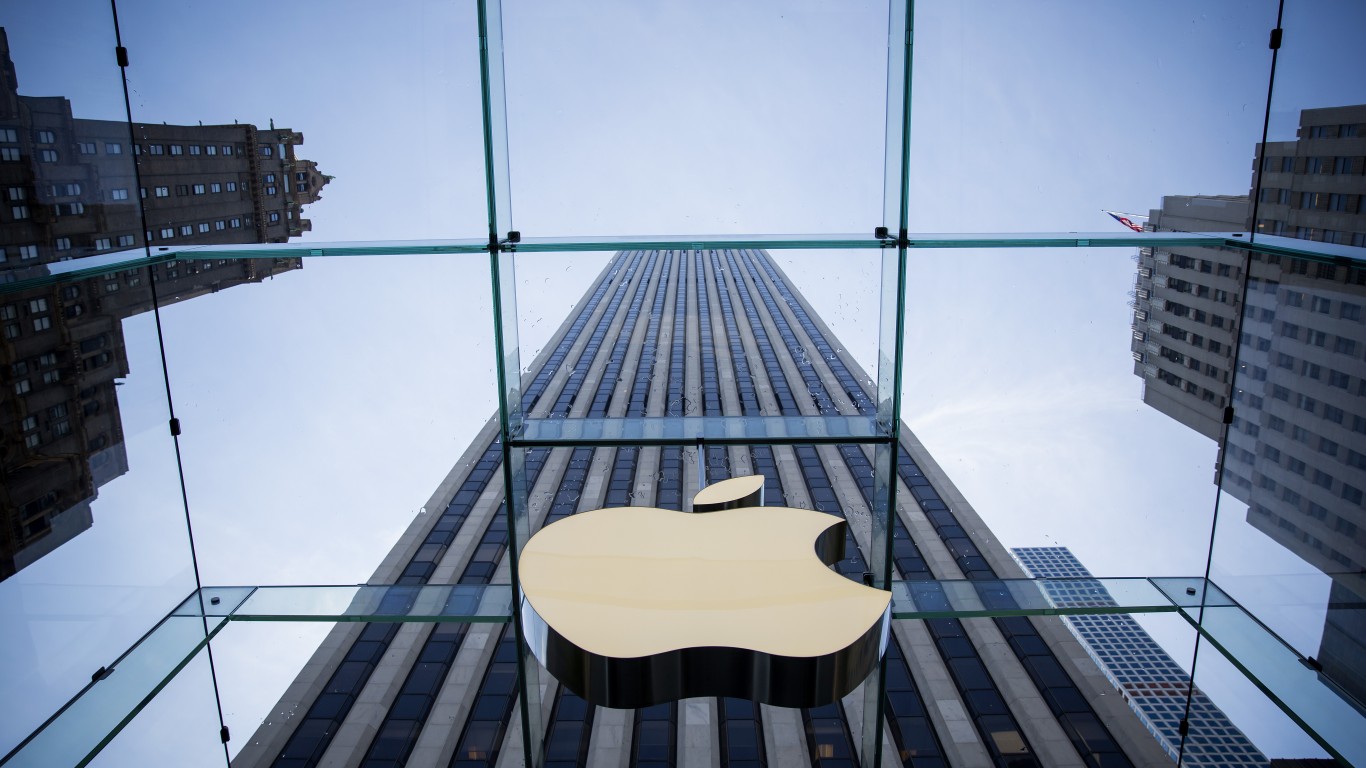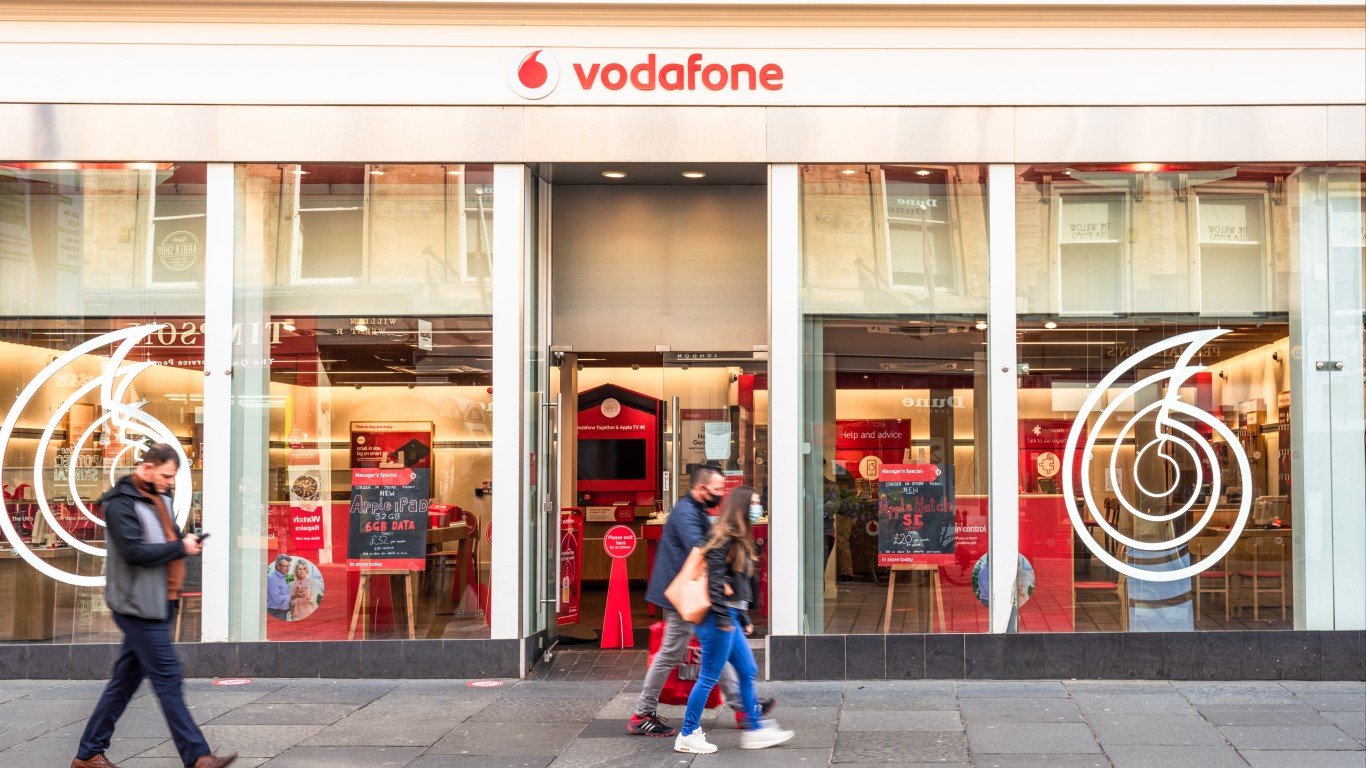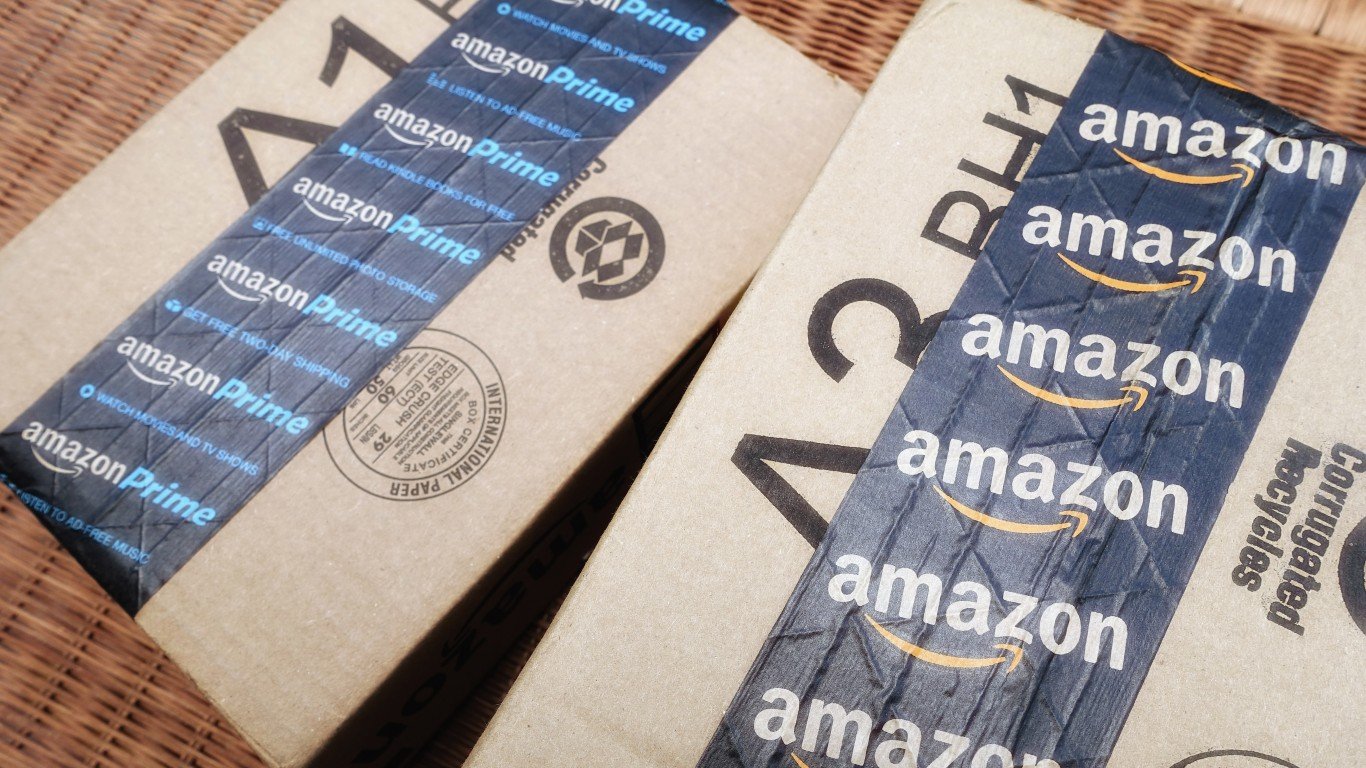
Maersk
> Pledge: Net-zero by 2040
> Quality and credibility of climate planning: Reasonable
> Revenue, 2020: $39.7 billion
> Emissions, 2020: 53.2 million metric tons of CO2 equivalent
> Major source of emissions: Shipping emissions from bunker fuels (63%)
Maersk is a Danish shipping company with the largest fleet of vessels in the world. Of the 25 companies assessed in the CCRM report, it had the best transparency and integrity when it came to its climate plan and was one of only three companies reviewed determined to have made a credible commitment to “deep decarbonization.” It has also set an example in working to reduce its future emissions attributable to energy use by investing in the development of clean energy solutions.

Apple
> Pledge: Carbon neutral by 2030
> Quality and credibility of climate planning: Moderate
> Revenue, 2020: $274.5 billion
> Emissions, 2020: 23.5 million metric tons of CO2 equivalent
> Major source of emissions: Purchase of goods for product manufacturing (70%)
More than most companies, Apple has taken seriously its responsibility to consider upstream emissions when assessing its carbon footprint. This means it is taking steps to reduce emissions, not just from its own factories, but also those of its suppliers. Focusing on energy, Apple invests in alternative energy projects and works to find high quality clean energy solutions for the companies that make parts and materials for its products.

Sony
> Pledge: Zero GHG emissions by 2050
> Quality and credibility of climate planning: Moderate
> Revenue, 2020: $77.5 billion
> Emissions, 2020: 18.5 million metric tons of CO2 equivalent
> Major source of emissions: Use of sold products(62%); raw materials and parts for manufacturing of products (20%).
Since 2010, Sony, a producer of electronic products and media, has been setting detailed energy and climate targets at five-year intervals and using those targets to guide the employment of measures to meet its longer term goal of net zero emissions by 2050. The New Climate Institute also credits the Japanese multinational for its transparency. The company offers detailed information on its emissions by source, activity, and location, and makes the data readily available for download.

Vodafone
> Pledge: Net-zero emissions by 2040
> Quality and credibility of climate planning: Moderate
> Revenue, 2020: $44.9 billion
> Emissions, 2020: 12.0 million metric tons of CO2 equivalent
> Major source of emissions: purchased goods and services (31%); investments in joint ventures (24%); use of sold products (17%).
CCRM is highly critical of companies that are relying heavily on offsets in their plans for meeting climate goals, as most offsets do not reliably reduce total global GHG emissions. U.K.-based telecommunication company Vodafone stands out as a company committed to deep decarbonization, with a mere 5% reliance on offsets. Still, the company gets “very low” marks for its lack of information about how emission reductions will be accomplished.

Amazon
> Pledge: Net-zero carbon by 2040
> Quality and credibility of climate planning: Low
> Revenue, 2020: $386.0 billion
> Emissions, 2020: 60.6 million metric tons of CO2 equivalent
> Major source of emissions: Scope 3 emissions account for the majority, but the specific sources are unclear due to poor granularity of data.
E-commerce giant Amazon was a co-founder of the Climate Pledge, an organization created to inspire businesses to join in the fight against climate change by committing to carbon emission reduction goals. Amazon is criticized in the report, however, for a lack of clarity on how it will reach its own goals and for its reliance on offsets. The report acknowledges the company’s $100 million Right Now Climate Fund in support of nature-based climate measures as a positive, but admonishes that Amazon should not use its philanthropic investments for future offsets.

 24/7 Tempo
24/7 Tempo




